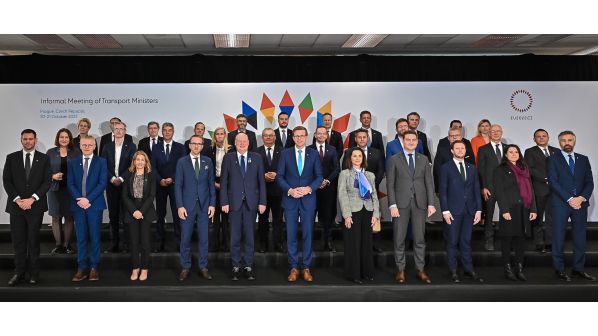EUROPEAN transport ministers have discussed development of railway transport, the future shape of the Trans-European Transport Network (TEN-T) network and energy prices during an informal meeting in Prague, along with ways to make railway transport more attractive and reliable. The meeting was held on October 21 under the Czech presidency of the Council of the European Union (EU).
“The strengthening of transport relations will undoubtedly contribute not only to easier movement of people but will also improve economic and social links both within the EU and beyond,” Czech transport minister, Mr Martin Kupka, said following the negotiations.
“We need to find ways to make rail transport more efficient and attractive for passengers. After the constraints caused by the Covid-19 pandemic, we are seeing an increasing interest in travelling, but at the same time we are seeing obstacles to greater use of railways, especially in cross-border connections.”
Ministers first discussed the development of high-speed rail in different parts of Europe, and the direction of further investments from EU funds. They also addressed the inclusion of new links in the TEN-T network and improved rail connectivity.
In light of the Russian invasion of Ukraine, the draft revision of the TEN-T network envisages the elimination of the rail links in Russia and Belarus and the inclusion of transport corridors in Ukraine and Moldova, including the possibilities of switching from 1520mm to standard gauge.
Another topic discussed during meeting was the high cost of energy where rail has been hit particularly hard. Energy prices is one of the key issues of the Czech Presidency.
The ministers agreed on the necessity to continue with the electrification of the European railway network. They also discussed what individual operators and infrastructure managers can do to reduce energy intensity while retaining the existing level of service.
“We have prepared a set of specific, practical measures to reduce energy consumption on railways that are used by individual member states,” Kupka says. “These include the purchase of more efficient vehicles capable of energy recovery, the unification of power supply systems, greater use of local renewable energy sources, smoother travelling without the need for frequent stops and replacement of station lightning with lower energy consuming alternatives.”
The afternoon session focused on ways to improve the quality and reliability of rail transport.
The ministers discussed how to remove technical obstacles, improve the coordination of closures, the reliability of transport and better connections. They also discussed how to make it easier to buy international tickets and how to better inform passengers about accidents and incidents. They talked about possibilities on how to improve timetabling and promote long-distance and cross-border transport.

